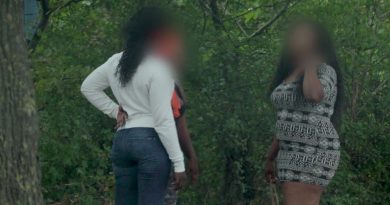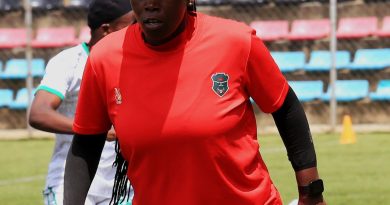Why the DPP leadership must tread carefully
By Joseph Kayira
All is not well in the former ruling party – the Democratic Progressive Party (DPP) – as there are growing calls for the party to elect a new leader to replace former president Peter Mutharika. Secretary General of the DPP Gresseder Jeffrey found herself in hot soup for suggesting that Mutharika should be replaced. She said she was only voicing out the views of the people at grassroots level. Mutharika was not happy with such calls. At a meeting held at Mutharika’s residence in Mangochi, Jeffrey was told not to attend.
Several other DPP officials have been cautioned on sentiments to have Mutharika replaced. Trouble has been brewing in the DPP well before the general elections in 2019. For instance, when Mutharika picked Evertone Chimulirenji as his running mate, those who thought they were more DPP and more deserving got disappointed. How could Mutharika pick a less popular figure who could not add value to his presidency? They wondered. Eventually, Chimulirenji was being compared with Saulos Chilima – a more charismatic and affluent leader who in 2014 helped to catapult the DPP into power.
By the time campaign for the general election was launched, the DPP was disjointed. There was lack of coordination and the campaign appeared to have been coordinated by a few who were still loyal to Mutharika. On the other hand, the opposition put up a well-coordinated campaign and it was obvious they would give Mutharika a good run for his money. Although the Malawi Electoral Commission (MEC) had declared Mutharika winner, it was apparent that the opposition would not accept the results.
Chilima, who stood on a UTM Party ticket, went to court. He was joined by Malawi Congress Party (MCP) leader Dr Lazarus Chakwera. They were not satisfied with the way MEC managed the election. The court ruled in their favour. For the first Malawi was going to have fresh presidential election. It meant more problems for the DPP. This time around the DPP campaign was more archaic. The DPP and the United Democratic Front (UDF) formed an electoral alliance. This time around, Chimulirenji was no longer in the picture. It was UDF’s Atupele Muluzi who had replaced him as running mate to Mutharika.
The arrangement with the UDF further irked some DPP gurus. And the campaign for the presidency was literally left in the hands of Atupele. Mutharika was rarely seen in public. There were reports that he was unwell. All this added misery to party followers who at most got half-baked information from disgruntled party officials. On the other hand, the Tonse Alliance of the MCP, UTM and six other parties gained ground. Again, the DPP leadership could not piece together the disjointed parts of the party. It was a party in disarray. There were reports of factions in the party. That in fighting came at a huge cost. Mutharika lost the presidency and the DPP was kicked out of government.
Calls for change of leadership
Before the formation of UTM Party, some in the DPP had already started advancing calls that Mutharika should leave the leadership of the party in the hands of his vice at the time Chilima. Mutharika’s in-law, Callista opened a can of worms when she said Mutharika was advanced in age and people around him were taking advantage of that fact to mislead him.
Those that were seen to be backing the vice president were harassed. They were forced to leave the DPP hence the birth of UTM Party. The recent calls to have Mutharika replaced are therefore not entirely new. It’s an old problem that senior party officials have grappled with all these years. The thing is political parties in Malawi tend to be owned by some families. The UDF was formed by Bakili Muluzi. When he left office his son Atupele assumed his father’s mantle. Others who disagreed with the choice of Atupele left. Afterall, these things go together with money and political clout. Muluzi as former president has all that.

In the case of the DPP, the story is not so different from that of the UDF. Bingu formed the DPP. He had indicated at some point that his brother would take over from him. At the time Joyce Banda was vice president. Her ambition to take over from Mutharika was frustrated. It was Peter, his brother who would be the president in 2014 and not Mrs Banda. So, when Bingu died in April in 2012, Peter became president of the DPP. Mrs Banda went on to become president of the republic for the next two years.
Mrs Banda too has positioned her son Roy Kachale to lead the party she formed – Peoples Party (PP). The story is the same with all other parties. People form these parties in the name of representing people while in actual sense, these parties are treated like family entities. They are owned by leaders who form them. They are like personal estates. That is why succession is always a problem. Questioning succession plans in these parties can lead to expulsion. That is why questioning when Mutharika would retire is ‘treasonous’ in the DPP. It’s like biting the finger that feeds you. The writing is on the wall for DPP supporters: Patriotic and true DPP supporters should not be questioning when Peter is expected to leave office.
But DPP senior officials should be careful. They cannot go on burying their heads in the sand and pretend that all is well. They must deal with the problem of succession in their party. It is true that Mutharika is advanced in age and may not be the likely candidate for the DPP in 2025. The party needs to find his successor in due course. The DPP needs to embark on a rebranding exercise as soon as possible.
Recent events in the party point to the fact that things are not as rosy as they may appear. Recently, one of the leading contenders to replace Mutharika, DPP President for the South and Leader of Opposition in Parliament, Kondwani Nankhumwa was summoned for disciplinary hearing in what others view as a ploy to frustrate him.
At this point the DPP must be told to avoid unnecessary fights. It is a party that must pray for unity at all cost if it wants to bounce back into government. Purging its senior and prominent figures at a time when its image needs joining of hands to rebuild will further reduce chances of winning the next election. Those who love the DPP must reflect on how they have failed to correctly use and implement the words “Democratic and Progressive.”


